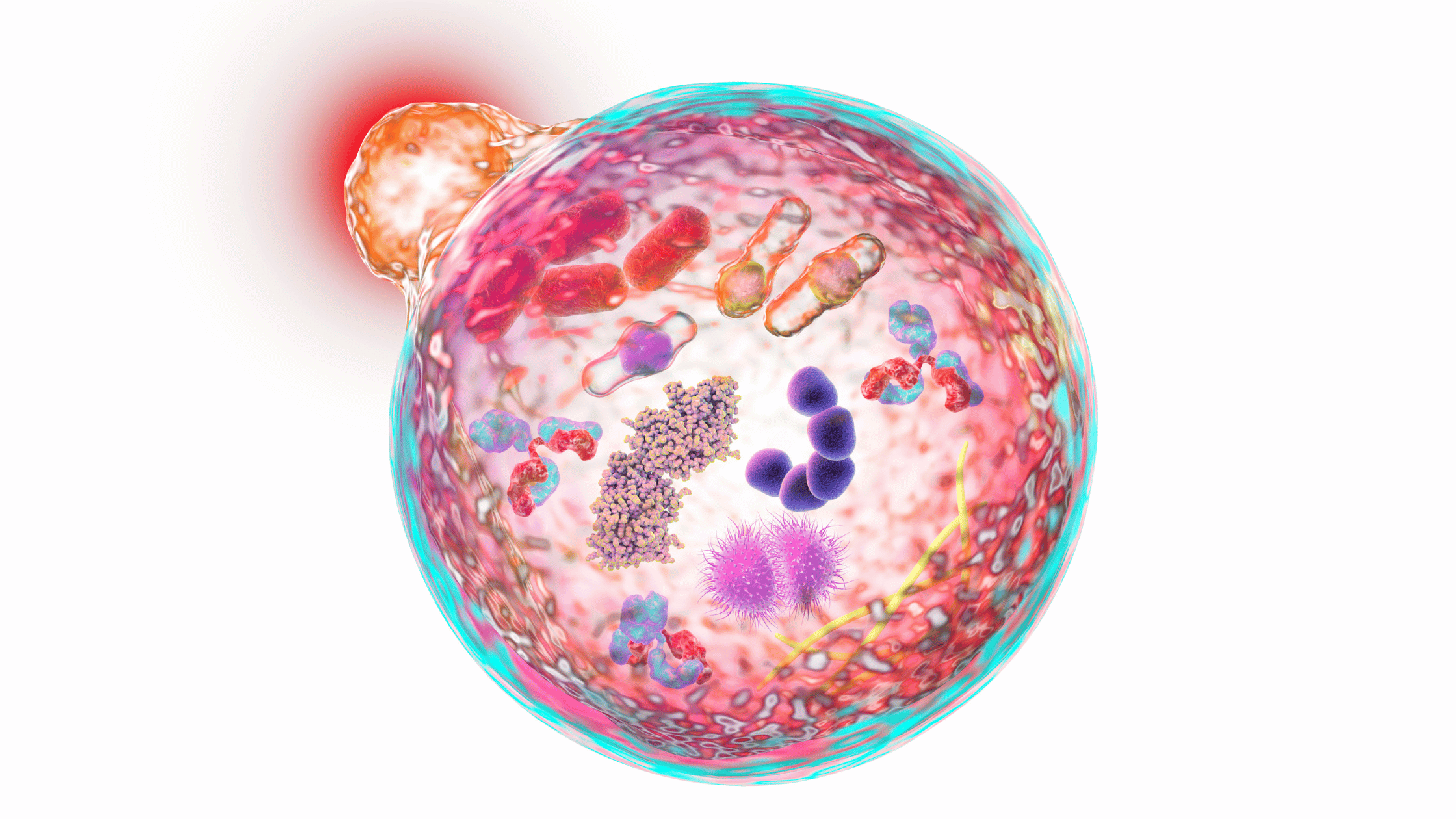Have you heard the buzz around NAD+? It’s exciting stuff! But whenever a new nutrient garners attention, we inevitably ask, “Should we take it in a pill or incorporate it into our meals?” This article aims to clarify these questions and provide simple ways to boost your NAD+ levels naturally.
What is NAD+?
Nicotinamide adenine dinucleotide (NAD+) is a vital coenzyme found in all living cells, derived from vitamin B3 (niacin). It is a key player in cellular metabolism, primarily functioning as an electron carrier. NAD+ participates in various essential processes, such as cellular respiration, glycolysis, and fatty acid oxidation, where it shuttles electrons, ultimately contributing to the production of adenosine triphosphate (ATP), the cell's energy source (R).
Moreover, NAD+ is involved in cellular defence mechanisms against oxidative stress and regulates gene expression through NAD+-dependent enzymes like sirtuins. NAD+ levels can vary due to factors like diet, exercise, and aging, sparking interest in NAD+ supplementation for potential health benefits, although further research is needed to fully understand its implications (R).
NAD+ is a fundamental molecule in cellular energy production and maintenance and a key player in cellular responses to stress and aging. Its versatile role in various biochemical pathways underscores its significance in the functioning of living organisms, making it a subject of scientific interest in comprehending its potential benefits for human health (R).
Why NAD+ Matters
NAD+ is often called the "molecule of youth" because of its vital role in cellular function and longevity. Here's why it's so important:
Cellular Energy Production
NAD+ is a critical player in cellular respiration, a process where cells convert nutrients into adenosine triphosphate (ATP), the primary energy currency of the cell. Higher NAD+ levels mean more efficient energy production, potentially increasing stamina and vitality (R).
DNA Repair and Longevity
NAD+-dependent enzymes, such as sirtuins, play a role in DNA repair and maintenance. This means optimal NAD+ levels can support cellular repair mechanisms, contributing to longevity and healthier aging (R).
Metabolic Health
NAD+ is involved in metabolic pathways, including glycolysis and fatty acid oxidation. Maintaining NAD+ levels can help regulate blood sugar levels and support overall metabolic health (R).
Oxidative Stress Defense
NAD+ contributes to the body's defences against oxidative stress by aiding in the production of antioxidant enzymes. Higher NAD+ levels may help combat the damaging effects of free radicals and reduce oxidative stress (R).
9 Simple Tips to boost NAD+ levels
Due to its potential health benefits, boosting NAD+ levels interests many researchers and individuals. While more research is needed to understand the effectiveness and long-term implications of NAD+ supplementation fully, several lifestyle practices may help support and maintain NAD+ levels:
1) Dietary Choices
Niacin-rich foods: Incorporate niacin-rich foods like lean meats, fish, poultry, nuts, and seeds into your diet (R).
Tryptophan Sources: Tryptophan, an amino acid, can be converted into niacin in the body. Foods rich in tryptophan include turkey, chicken, dairy products, and legumes (R).
Resveratrol sources: Resveratrol, found in grapes, red wine, and berries, activates sirtuins, NAD+-dependent enzymes involved in DNA repair and longevity, indirectly aiding NAD+ metabolism (R).
2) Intermittent Fasting
Some studies suggest intermittent fasting may increase NAD+ levels, possibly due to the energy stress it places on cells (R).
3) Regular Exercise
Physical activity has been associated with increased NAD+ levels. Both aerobic (jogging, dancing, hiking) and resistance exercises (weights) can be beneficial (R).
4) Adequate Sleep
5) Stress Management
Chronic stress can deplete NAD+ levels. Incorporate stress-reduction techniques such as mindfulness, meditation, or yoga into your routine (R, R).
6) Avoid Excessive Alcohol Consumption
Excessive alcohol consumption can deplete NAD+ levels. Moderation is key (R, R).
7) Sun Exposure
Limited sun exposure can stimulate vitamin D production, affecting NAD+ metabolism (R).
8) Avoid Overeating
Overeating and excessive calorie intake may negatively impact NAD+ levels, so maintaining a balanced diet and portion control is important (R).
9) Maintain a Healthy Weight
Obesity has been associated with reduced NAD+ levels. Maintaining a healthy weight through diet and exercise may help (R).
The Benefits of boosting NAD+
Boosting NAD+ (nicotinamide adenine dinucleotide) levels naturally or through lifestyle practices offers several potential benefits due to its critical role in various cellular processes. Here are some of the key advantages of a natural boost in NAD+ levels:
Enhanced Cellular Energy Production
NAD+ is essential for cellular respiration, where it aids in converting nutrients into adenosine triphosphate (ATP), the primary energy source for cells. Increasing NAD+ levels may support more efficient energy production, potentially increasing stamina and vitality (R, R).
Metabolic Health
NAD+ is involved in metabolic pathways such as glycolysis and fatty acid oxidation. Maintaining optimal NAD+ levels can help regulate blood sugar levels and support overall metabolic health (R).
DNA Repair and Longevity
As mentioned, enzymes that rely on NAD+, such as sirtuins, are involved in the repair and upkeep of DNA. Increasing NAD+ levels could potentially aid in enhancing cellular repair processes, thus promoting longevity and healthier aging (R).
Protection Against Oxidative Stress
NAD+ is essential for the production of antioxidant enzymes. Higher NAD+ levels can help combat the damaging effects of free radicals and reduce oxidative stress (R).
Neuroprotection
Some research suggests that NAD+ may have neuroprotective effects. Increasing NAD+ levels might support brain health and potentially reduce the risk of neurodegenerative diseases (R).
Exercise Performance and Muscle Function
NAD+ plays a role in muscle function and repair. Raising NAD+ levels may aid muscle recovery, enhancing exercise performance and recovery (R).
Mitochondrial Health
NAD+ is critical for mitochondrial function, and essential for overall cell health and energy production. Elevated NAD+ levels can help maintain healthy mitochondria (R).
Immune System Support
NAD+ is involved in immune cell function. Increasing NAD+ levels may help support a robust immune response. Metabolism of NAD+ has the potential to influence the functional characteristics of both innate and adaptive immune cells while also playing a role in modulating inflammatory responses (R).
Anti-Aging Effects
NAD+ has been associated with the regulation of genes involved in aging processes. Boosting NAD+ levels may have anti-aging effects, though this area of research is ongoing (R).
Stress Resilience
NAD+ can impact the body's response to stress. Maintaining healthy NAD+ levels may enhance stress resilience and overall well-being (R).
What about NAD+ supplements?
Supplements designed to boost NAD+ (nicotinamide adenine dinucleotide) levels are of interest due to the potential health benefits associated with maintaining or increasing NAD+ levels.
Nicotinamide mononucleotide (NMN) and nicotinamide riboside (NR) are two compounds that have gained attention as potential precursors to NAD+. These supplements are believed to be converted into NAD+ in the body (R).
The ability of NMN and NR to effectively raise NAD+ levels in humans may be influenced by factors such as dosage, absorption, and metabolism. Ensuring that the supplements reach the cells and tissues where needed is crucial. It is essential you are receiving guidance from an experienced healthcare provider. They can help assess whether such supplements are appropriate for your specific health circumstances and advise usage (R).
Apigenin is another supplement gaining notoriety for its potential ability to increase NAD+ levels. Some research has suggested that apigenin and NMN may have CD38 inhibitory properties. By inhibiting CD38, apigenin may help preserve NAD+ levels and contribute to the potential benefits of maintaining NAD+ (R R).
Supplements should not be seen as a replacement for a healthy lifestyle. Lifestyle factors such as a balanced diet, regular exercise, and stress management influence NAD+ levels and overall health.
Conclusion
NAD+ is an emerging superstar in the game of antiaging. But to get the most out of it, you must approach it holistically. A healthy boost of NAD+ from your diet is a must. Choosing supplements is potentially advantageous, although you must select your supplement with expert health guidance to get the most from these. As with all aspects of life, the quality of your health depends on the quality of your choices.





